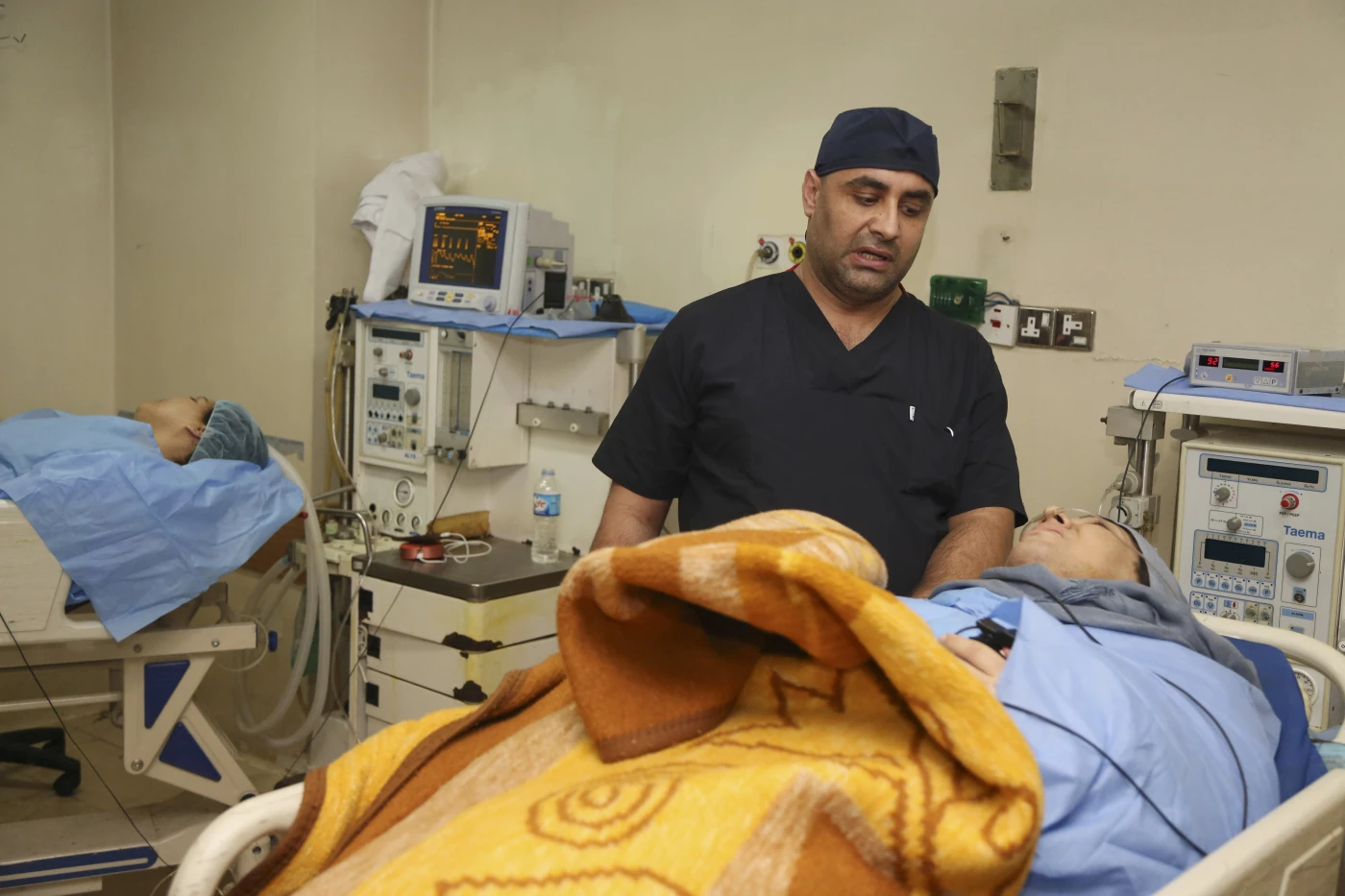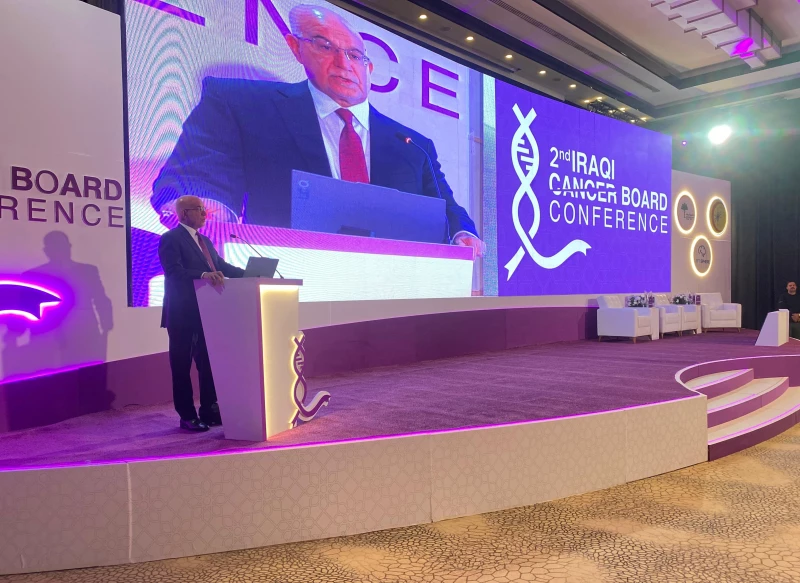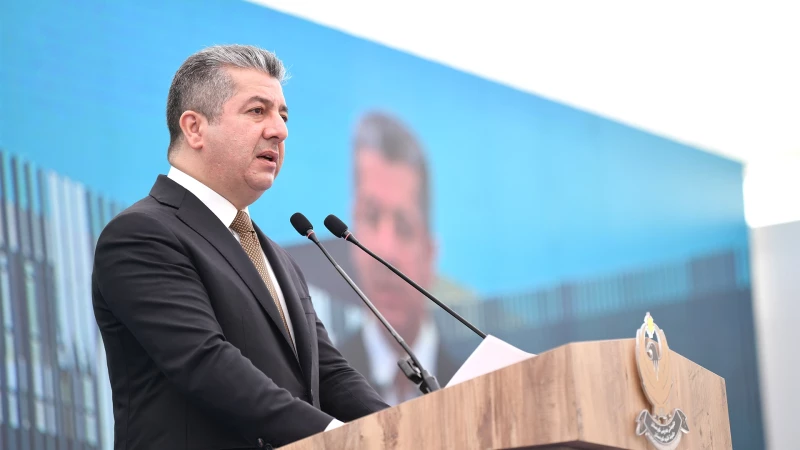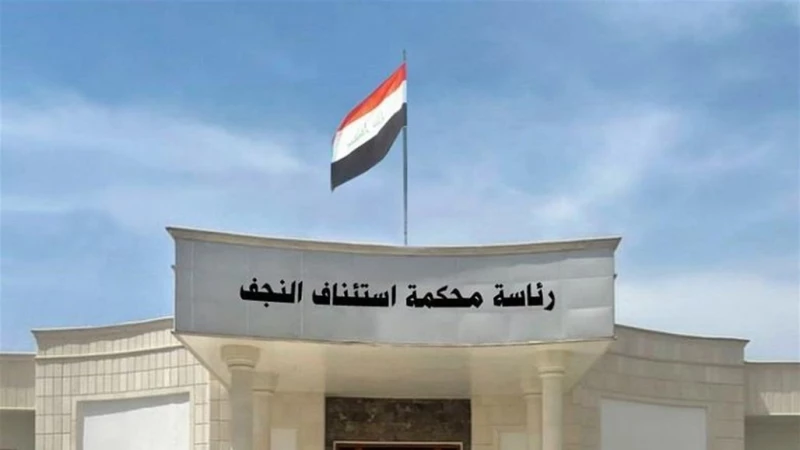ERBIL, Kurdistan Region of Iraq - Cancer cases are steadily increasing in Najaf, according to a senior health official who is calling for urgent improvements to the province’s healthcare system.
Dr. Sundus al-Hamdani, head of the Cancer Control Unit at the Najaf Health Directorate, told The New Region that “there is an annual increase ranging between 100 to 150 cases compared to previous years.”
A 2024 report from the Najaf Health Directorate showed that 1,872 people were diagnosed with cancer last year. Of those, 1,340 cases were recorded at the Middle Euphrates Oncology Hospital. The rest were treated at other hospitals and health centers. The province also reported 629 cancer-related deaths during the same year.
Hamdani said the main cancer center in the province is overwhelmed. “The Middle Euphrates Oncology Center is facing significant overcrowding due to the rising number of patients,” she said. “All patients are receiving medical care, but the current capacity is not enough. This affects the quality of service.”
She added that expansion work is underway at the facility. “The center is currently undergoing expansion efforts aimed at accommodating the increasing numbers and improving the quality of care,” Hamdani said.
Regarding cancer treatment, Hamdani said that only some medications are available through public hospitals. “Part of the cancer drugs are available in government health institutions,” she said. “But patients often have to buy the rest from the private market, usually at very high prices. This increases the financial burden on patients and their families.”
Hamdani urged authorities to build a new hospital dedicated to cancer treatment in Najaf. “There should be a specialized hospital equipped with the necessary medicines and therapies,” she said. “Such a project would be a major step forward for the health sector and would greatly serve the province.”
She also said that while the causes of cancer are medically known, many people still ignore basic health advice. “Weak commitment to health guidelines by many citizens remains a challenge,” Hamdani said. “This is despite the ongoing awareness and education campaigns across the province.”
Hamdani pointed to several factors contributing to cancer cases. She said poor eating habits, like consuming too many fatty and sugary foods, are common. She also warned about the use of hormones without medical advice, especially among young people. “This has contributed to the spread of some tumors, including breast cancer even among men,” she said.
Other major causes include smoking, alcohol use, pollution from factories and cars, and a lack of green spaces. She added that limited physical activity, polluted water, and poor management of medical waste are also serious problems.
“Dealing with cancer requires a comprehensive response that combines treatment, awareness, and prevention,” Hamdani said. She called for more support for the healthcare system in Najaf and for better access to the tools and medicines needed to face what she described as a growing challenge.


 Facebook
Facebook
 LinkedIn
LinkedIn
 Telegram
Telegram
 X
X



